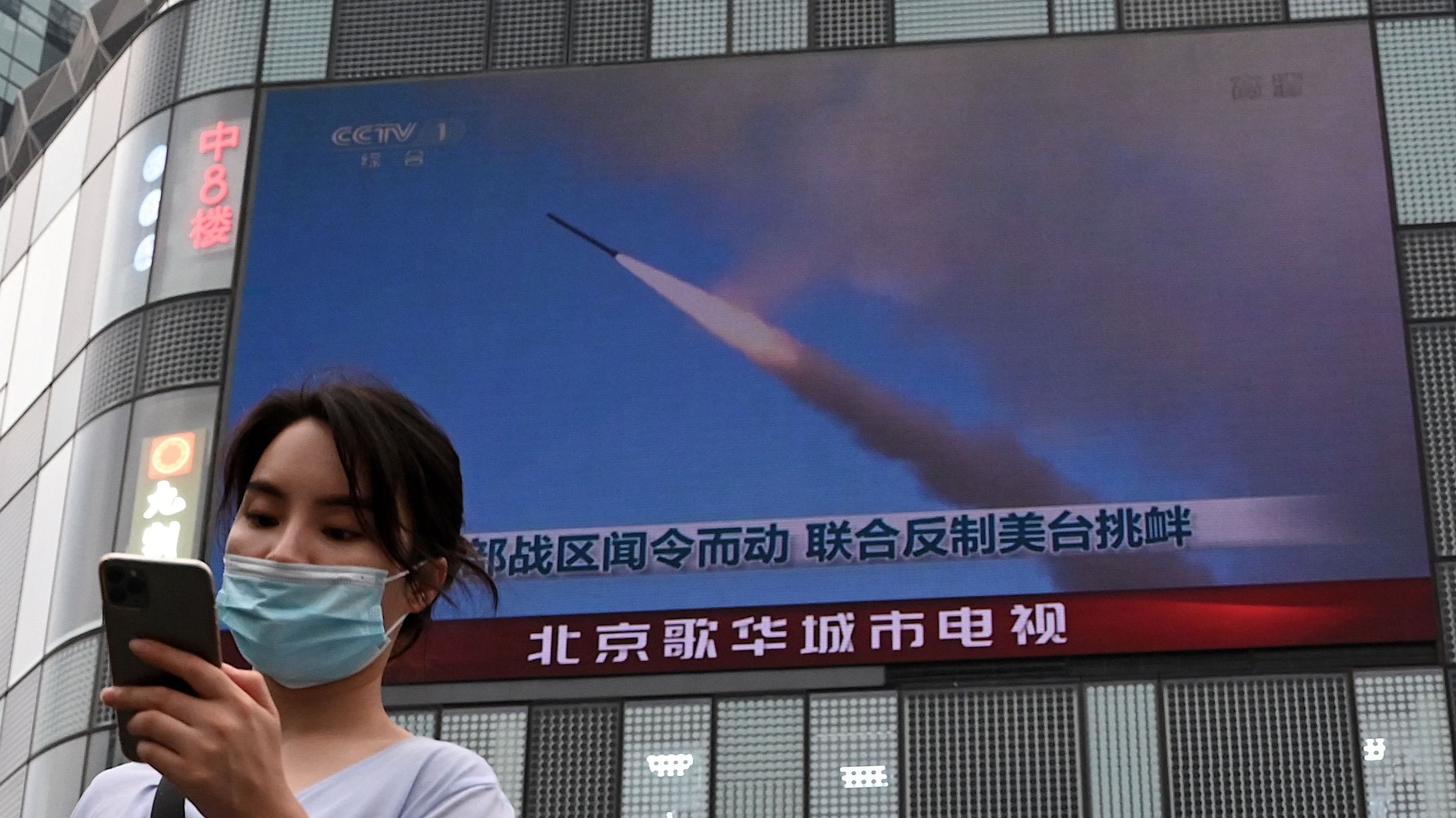
As the war in Ukraine grabbed the world's attention earlier this year, a key concern emerged for Indian strategic planners: Would the conflict in Europe distract the United States from the Indo-Pacific, where New Delhi, Washington and their friends are locked in competition with Beijing?
The visit to Taiwan earlier this week by Nancy Pelosi, the Speaker of the US House of Representatives, despite threats from Beijing, answers that question in a manner that should bring relief to New Delhi. Congress Member of Parliament Manish Tewari has written to Lok Sabha Speaker Om Birla proposing a similar visit by a delegation of Indian parliamentarians to Taiwan, under Birla's leadership.
But the heightened tensions in the Taiwan Strait in the aftermath of that trip should also serve as a reminder to India that it must stay careful not to cheer on a 21st century knife fight between the world's two biggest powers, the US and China. Any military escalation involving Beijing and Washington will directly impact all onlookers — and India more than most others.
China has announced live-drill military exercises close to Taiwan's land borders and within the island's maritime territory, starting Thursday. These drills represent an escalation of Beijing's show of military strength compared to 1996, during the last major crisis with Taipei, when it conducted exercises a little further away from the self-governed territory that China claims. In eyeball-to-eyeball confrontations like this, a miscalculation by either side cannot be ruled out.
But even if such dire scenarios are avoided, the rhetoric from China in the wake of Pelosi's visit suggests that it intends to draw a line in the sand and make sure that the world knows it. Beijing's diplomatic relations with all nations are based on their acknowledgement of the One China policy — under which they recognise the communist regime on the mainland as the only China and reject formal diplomatic ties with Taiwan.
While legislators from the US and multiple other democracies — including India — have repeatedly visited Taiwan, China views a trip by Pelosi as a provocation because of her seniority: She is the first US Speaker to visit Taiwan since 1997. China has accused the US of reneging on its bilateral commitments, while the Biden administration insists that it still upholds the One China policy.
But far too much is at stake domestically for both Biden — ahead of US midterm elections in November — and Chinese President Xi Jinping — who must defend his record at the Chinese Communist Party's Congress later this year — for either side to walk away easily.
The result: It is unlikely that China's protest will be limited to a handful of days. Already, the drills around Taiwan effectively represent a blockade of the island nation, where most of the world's high-end semiconductor chips are manufactured. If this trade barrier remains in place — or if security concerns make ships rethink travel to the Taiwan Strait — India and the rest of the world will suffer.
But the tensions could also easily expand beyond the Taiwan Strait into the South China Sea and Malacca Straits, through which 55 per cent of India's global trade passes. Uncertainty in those waters is not in India's interests — even if the crisis is fundamentally centred around China.
By trying to imitate Pelosi's trip, India and chest-thumping politicians from both sides of the aisle would risk further inflaming an already incendiary situation. For its big talk aimed at the US, China's retaliatory actions so far have focused on Taiwan, including through a set of economic sanctions. Neither geography nor capabilities favour Beijing in mounting a military warning to the US.
What China can do — and has done with Taiwan — is to try to punish countries in the Indo-Pacific. Chinese troops are already occupying parts of Indian territory in Ladakh and adopting increasingly threatening postures along the Line of Actual Control. The government of Prime Minister Narendra Modi appears unable to do much about this encroachment. Is it really a good idea, then, to kindle a fresh fire with China over Taiwan?
To be sure, India must look to bolster economic and trade ties with Taiwan. It should also strengthen political relations. And it must not allow itself to be strong-armed by Beijing. But there's a difference between getting bullied and provoking a bully. India should do neither.
(Charu Sudan Kasturi is a journalist)
Disclaimer: The views expressed above are the author's own. They do not necessarily reflect the views of DH.